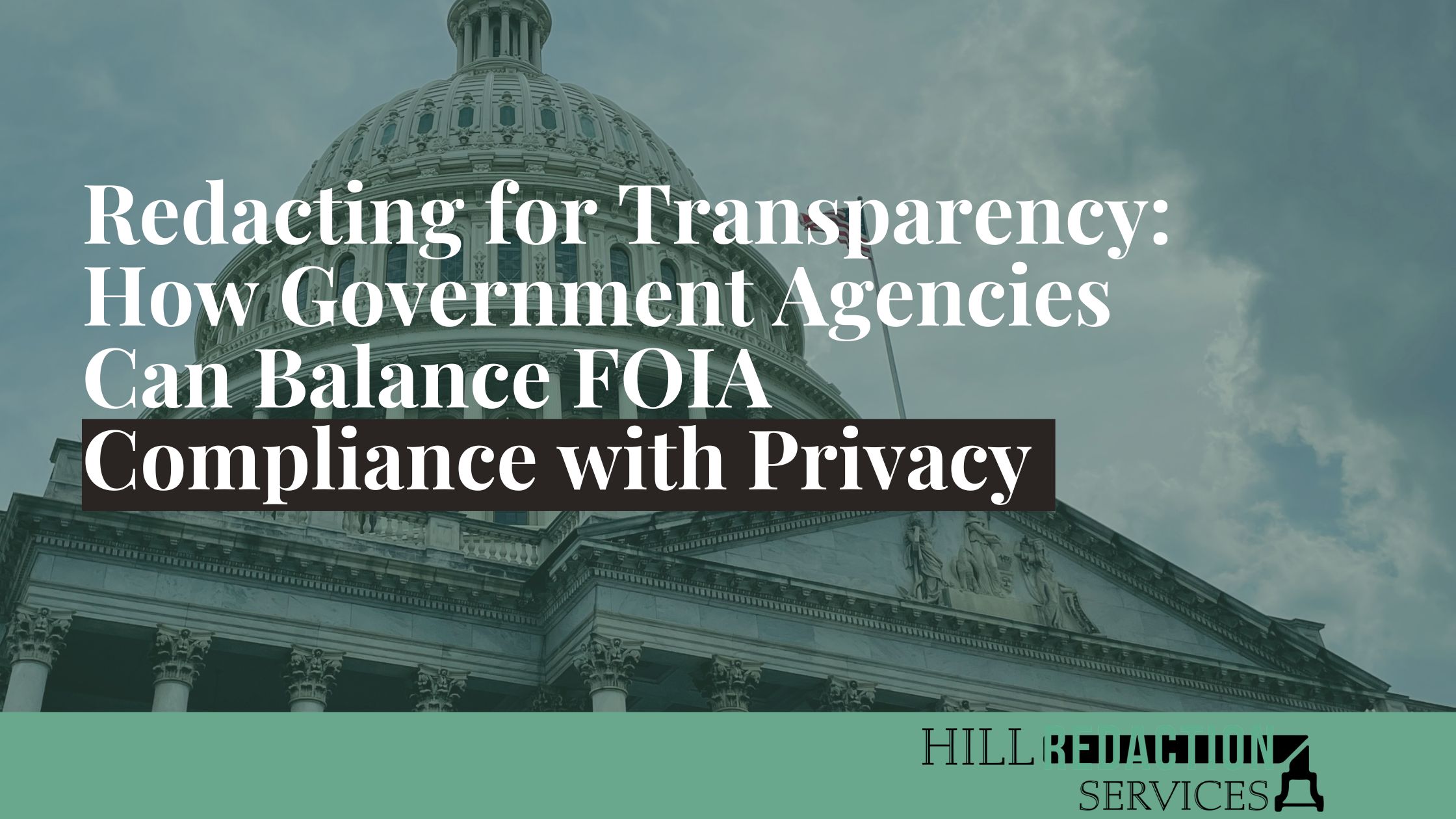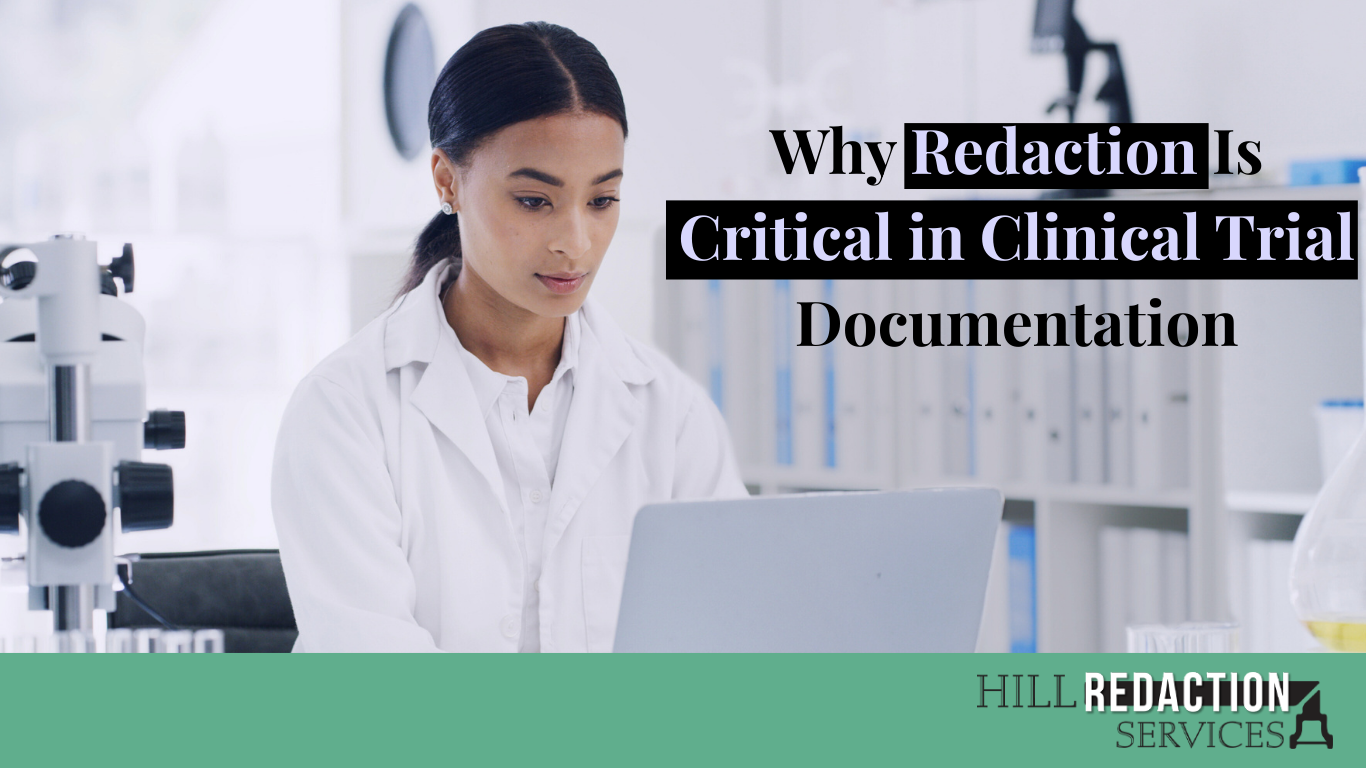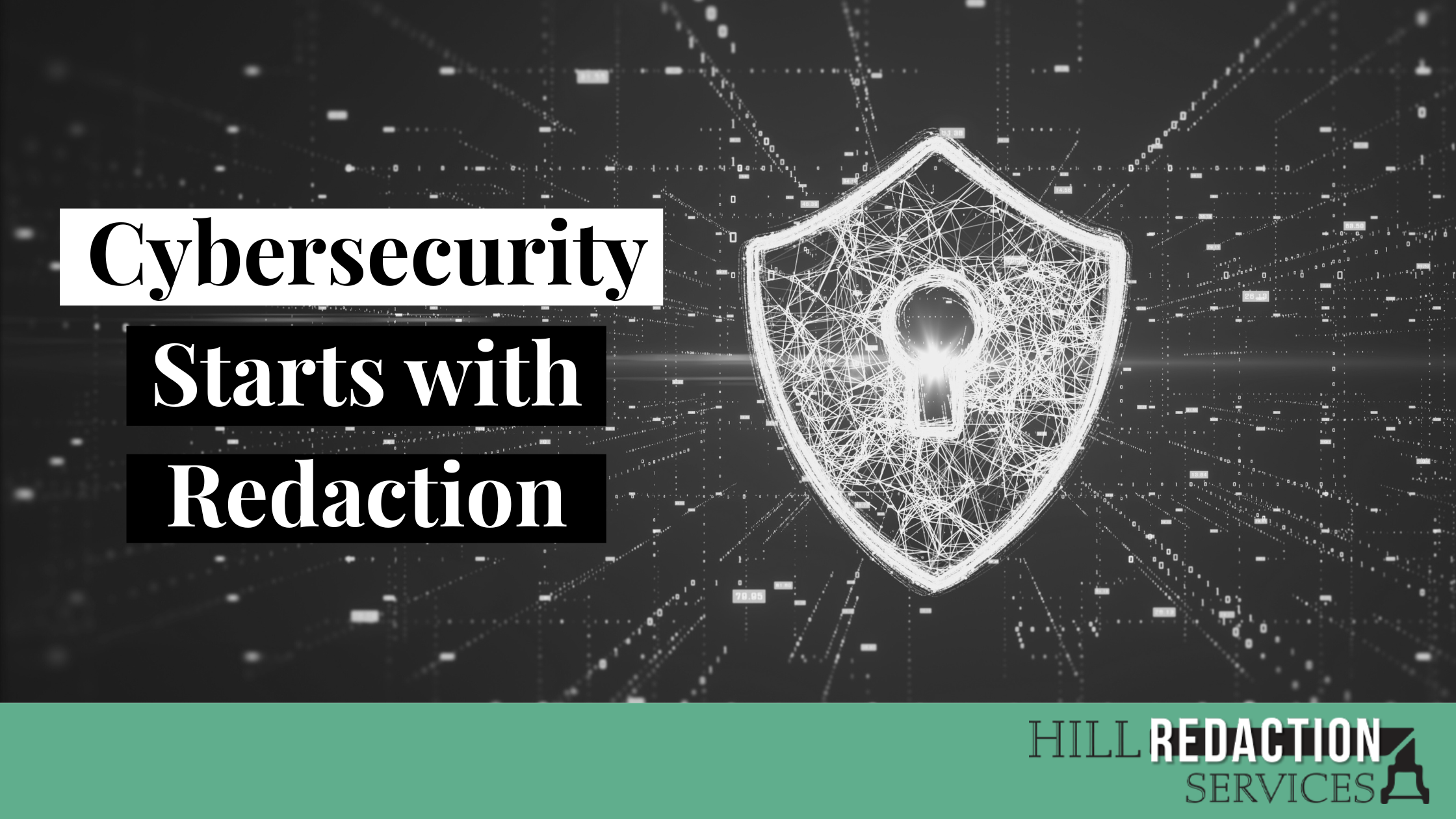
Redacting for Transparency: How Government Agencies Can Balance FOIA Compliance with Privacy
Government transparency is a cornerstone of democracy, and the Freedom of Information Act (FOIA) plays a crucial role in upholding that ideal. But with transparency comes responsibility: public agencies must release records that inform the public while protecting sensitive personal and national security information. That delicate balance is where redaction comes in.
The Dual Obligation: Access and Protection
FOIA requires agencies to disclose records upon request, but it also outlines nine exemptions that protect sensitive content, including personal privacy, national security, and law enforcement interests. The challenge lies in complying with FOIA requests without compromising individuals’ rights or revealing information that could be harmful if misused.
Common Pitfalls in FOIA Redaction
Agencies that attempt in-house redaction often face issues like:
- Inconsistent application of FOIA exemptions
- Over or under-redaction
- Improper use of redaction tools, leading to hidden but recoverable text
- Delayed response times due to a lack of resources
These mistakes can result in legal consequences, public mistrust, or unintentional data breaches.
Why Redaction Is More Than Just Black Boxes
Effective redaction isn’t just about obscuring content—it’s about doing so securely and systematically. PDF redaction tools, when not used properly, can leave metadata or embedded text visible. Hill Redaction Services ensures that every piece of redacted information is permanently removed and cannot be recovered.
Tailored Redaction for Public Sector Needs
Government records often contain a mix of public and protected information. From police reports to public health data, every document type requires a careful, rule-based approach. At Hill Redaction, we use a combination of automated technology and expert human review to:
- Identify exempt information accurately
- Apply redactions consistently across documents
- Ensure compliance with federal, state, and local privacy laws
The Benefits of Partnering with a Professional Redaction Service
Outsourcing FOIA-related redaction to a trusted partner like Hill Redaction Services brings:
- Faster turnaround times
- Reduced legal risk
- Audit-ready documentation of redaction decisions
- Peace of mind that your agency remains both transparent and compliant
Transparency and privacy don’t have to be at odds. With the right redaction strategy, government agencies can fulfill their duty to inform the public while safeguarding the sensitive details that don’t belong in the open. Hill Redaction Services stands ready to support agencies nationwide in achieving that balance.
Learn more about how Hill Redaction Services can help your agency meet FOIA requirements with confidence. Visit hillredact.com or call us for a consultation.
Related Posts

Redacting for Transparency: How Government Agencies Can Balance FOIA Compliance with Privacy
Government transparency is a cornerstone of democracy, and the Freedom of Information Act (FOIA) plays a crucial role in upholding that ideal. But with transparency comes responsibility: public agencies must release records that inform the public while protecting sensitive personal and national security information. That delicate balance is where redaction comes in.
The Dual Obligation: Access and Protection
FOIA requires agencies to disclose records upon request, but it also outlines nine exemptions that protect sensitive content, including personal privacy, national security, and law enforcement interests. The challenge lies in complying with FOIA requests without compromising individuals’ rights or revealing information that could be harmful if misused.
Common Pitfalls in FOIA Redaction
Agencies that attempt in-house redaction often face issues like:
- Inconsistent application of FOIA exemptions
- Over or under-redaction
- Improper use of redaction tools, leading to hidden but recoverable text
- Delayed response times due to a lack of resources
These mistakes can result in legal consequences, public mistrust, or unintentional data breaches.
Why Redaction Is More Than Just Black Boxes
Effective redaction isn’t just about obscuring content—it’s about doing so securely and systematically. PDF redaction tools, when not used properly, can leave metadata or embedded text visible. Hill Redaction Services ensures that every piece of redacted information is permanently removed and cannot be recovered.
Tailored Redaction for Public Sector Needs
Government records often contain a mix of public and protected information. From police reports to public health data, every document type requires a careful, rule-based approach. At Hill Redaction, we use a combination of automated technology and expert human review to:
- Identify exempt information accurately
- Apply redactions consistently across documents
- Ensure compliance with federal, state, and local privacy laws
The Benefits of Partnering with a Professional Redaction Service
Outsourcing FOIA-related redaction to a trusted partner like Hill Redaction Services brings:
- Faster turnaround times
- Reduced legal risk
- Audit-ready documentation of redaction decisions
- Peace of mind that your agency remains both transparent and compliant
Transparency and privacy don’t have to be at odds. With the right redaction strategy, government agencies can fulfill their duty to inform the public while safeguarding the sensitive details that don’t belong in the open. Hill Redaction Services stands ready to support agencies nationwide in achieving that balance.
Learn more about how Hill Redaction Services can help your agency meet FOIA requirements with confidence. Visit hillredact.com or call us for a consultation.





